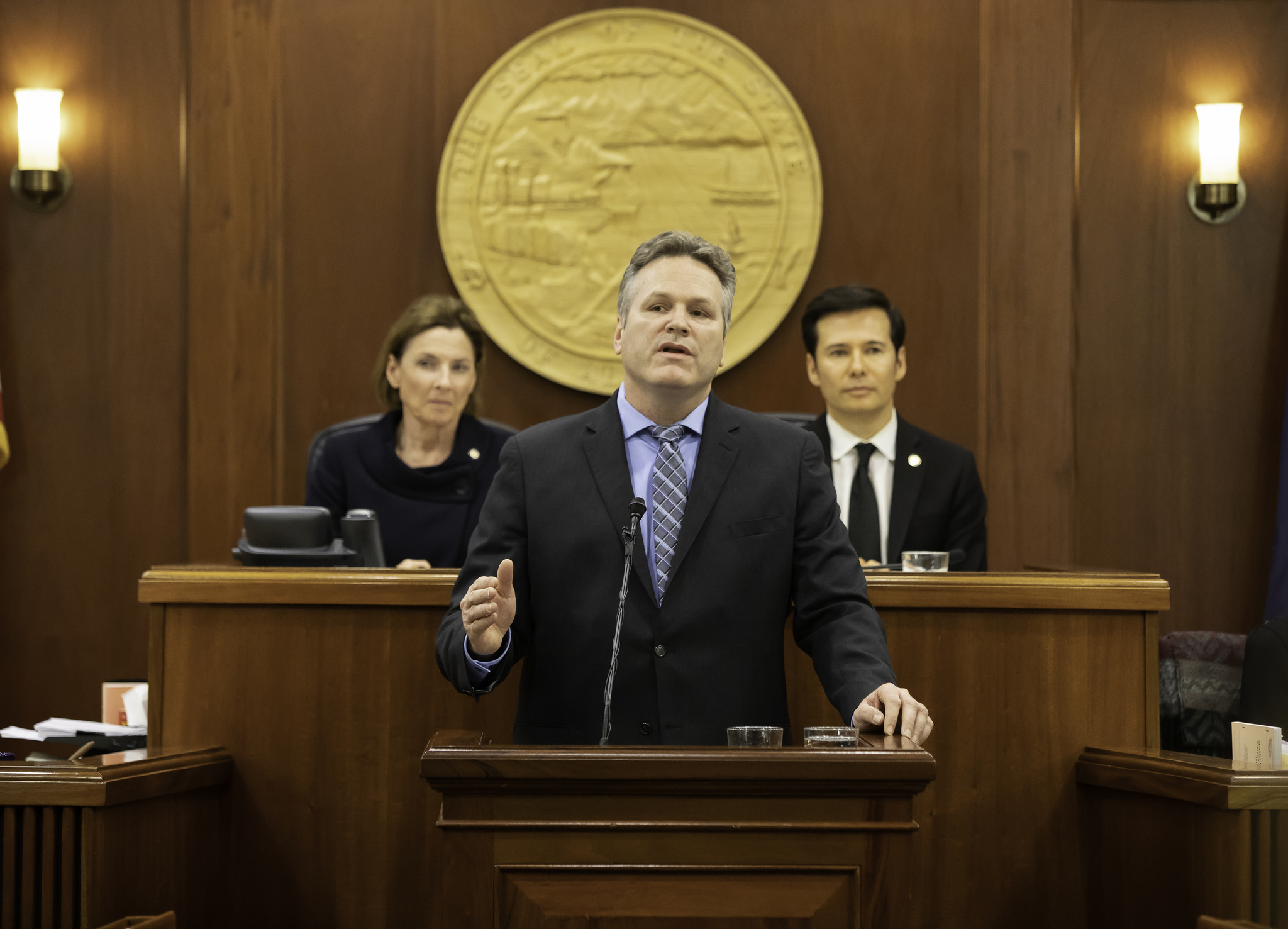
The state of Alaska no longer has an official strategy for addressing climate change, reports Arctic Today. With an administrative order issued on Feb. 21, Gov. Mike Dunleavy dismantled the state’s Climate Action for Alaska Leadership Team appointed by his predecessor, Gov. Bill Walker, and jettisoned the group’s strategy and action recommendations. Alaska Gov. Mike Dunleavy delivers the State of the State address in January. (Photo: Office of the Governor)
The climate policy was one of several Walker initiatives that Dunleavy discarded with his Feb. 21 order. Among the other policies were holds on certain controversial and high-ticket construction projects and a series of labor protections.
In an emailed statement, a Dunleavy spokesman dismissed the Walker initiatives, all launched by administrative orders issued by the previous governor, as unnecessary.
“For various reasons these AO’s are no longer needed: they are no longer relevant, have fulfilled their intended purpose, are not aligned with the Governor’s policy direction, and/or appear to have been made primarily for political or public relations purposes,” Matt Shuckerow, Dunleavy’s press secretary, said in the email.
“No Governor should be tied to a previous administration’s work product or political agenda, and nobody should be surprised to see Governor Dunleavy make this decision,” Shuckerow said.
But members of the climate team said they were, in fact, surprised that the governor had taken such an action.
“I didn’t expect it,” Chris Rose, founder of the Renewable Alaska Energy Project and a team member, said in an email. Rose said he received an emailed letter from the governor that provided “no explanation” and did not make it clear that Dunleavy was ending the entire climate program.
Walker established the climate team in 2017. Last September, the group released a strategy and a series of recommendations for helping Alaska adapt to climate change — which is occurring far faster in the Arctic than in the rest of the world — and reduce its own greenhouse gas contributions. The recommendations included targets for transition to renewable energy sources, consideration of a carbon-pricing or carbon-tax system and a call for diversification into new businesses, including the selling of carbon offsets through preservation of Alaska forests and wetlands.
Rose said team members had hoped the state government would build on the recommendations.
“Without such planning, Alaska will be more vulnerable to negative climate change impacts and less attractive to outside investors who are coming to expect that states and municipalities will diligently work to adapt to climate change, and lower GHG emissions,” he said in the email. “Without those types of proactive efforts by the state government, many investors who could help diversify the Alaskan economy and create good paying jobs will go elsewhere.”
Information about the Climate Action for Alaska Leadership Team and its work has been stripped from state government websites. But that information, including the team’s report and strategy, is preserved elsewhere, including on the website with information about the climate action plan that is being developed by the municipality of Anchorage, reports Arctic Today.



